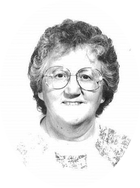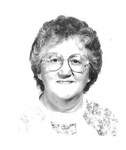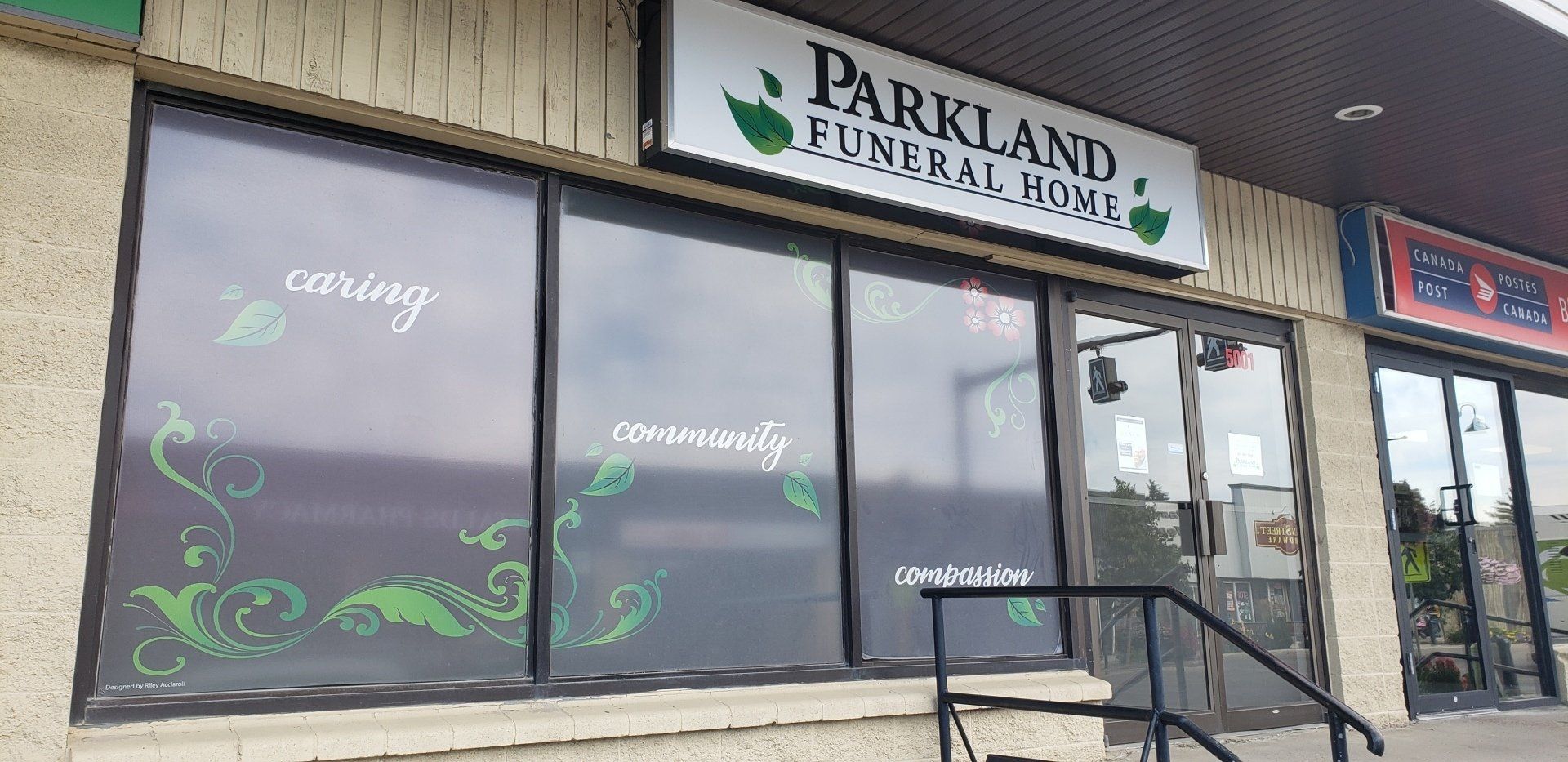Open Full Navigation
Call us anytime - 24 hours service.
Red Deer 403-340-4040
Eckville 403-746-2024
Blackfalds
403-885-1160
Toll Free 1-800-481-7421
Bom-Wrapper
We're sorry but the candle you have selected is currenty in the process of being purchased or has just recently been purchased.
Please feel free to select another candle or check back in 15 minutes to see if the candle you have selected has been released for purchase.
Thank you.
Okay
We're sorry but there are no candles available for lighting.
Thank you.
Ok
You have already begun a candle purchase session. If you would like to continue with your current candle choice please click "Continue" otherwise please click "Select Another".
Thank you.
Select another
Continue

In Memory of
Margaretha Adriana
Ten-Hove
Ten-Hove
1932 - 2018
Click above to light a memorial candle.
The lighting of a Memorial Candle not only provides a gesture of sympathy and support to the immediate family during their time of need but also provides the gift of extending the Book of Memories for future generations.
Menu
- Obituary/Notice
- Condolences and Tributes
- Light a Memorial Candle
- Service Details
- Memories
- Share
- Help
- Book of Memories
Parkland Funeral Home
6287-67A Street (Taylor Drive)
Red Deer, Alberta
CANADA
T4P 3V9
In the event that there is an error
in the information presented,
please contact the funeral
home by clicking here.
Obituary for Margaretha Adriana Ten-Hove

Margaret Ten-Hove was born in Maastricht in the southern Netherlands, on May 15, 1932. She was first child born to Wolter Gort, a Customs Inspector, and Maria Gort (nee Bol).
Her early life was not particularly easy, and bit by bit she told stories of what it was like to grow up during the Depression, Occupied Holland in the Second World War, and the famine and recession that followed. It could have made her a hard woman, but she was greater than that.
Her ancestry was pure Dutch and pure cantankerous on both sides. When her mother Maria took up with Wolter, Maria's parents told their daughter that if she married 'that man' -- their daughter was much too good for Wolter, they knew that, even if Maria didn't -- they'd never talk to her again.
She did and they didn't.
Her father sometimes just exasperated her. Food was short during the war, but luckily, her family was assigned the use of a vacant lot to use as a vegetable garden. Wolter, who had five children, used it for tobacco. As the war turned against them, the Germans swept the streets of the occupied nations to round up able-bodied people for forced labour. At great risk to herself (twelve was plenty big enough to work in the factory) Margaret would venture out onto those same streets to warn her father. He never seemed to appreciate what she'd done.
She was hurt, but not directly by the war. She was riding her bike over the cobblestones and fell and hurt her back. No one called a doctor because she seemed little hurt -- but hurt she was and there were plenty of doctors waiting in her future.
One Sunday late in the war, they were in church when the bells began ringing. The people spilled out to see what was happening. In the sky were airplanes, hundreds of them, and from the planes came parachutes, thousands of them. The children were thrilled, but the adults were just terrified. The war had come to Nijmegen and there it stayed for months. Margaret, luckily on the American side of the front line a few kilometres away, had a collection of shell splinters she kept in a jar. Not just any shell splinters; just the ones that might have killed her, such as the one that knocked the heel off her shoe.
The year the war ended offered a new misery. Margaret's mother died in an iron lung of a kind of progressive muscular weakness called myasthenia gravis. The next payday, her father handed her his paycheque. She had stepped into her mother's shoes. She was thirteen.
In the next few years she gained a stepmother she disliked. She worked in an old age home, and swore never to live in one herself. Life was not as she wanted it, and she was too stubborn to just take what she was given.
Finally, though, she was grown up enough to live as she pleased, and what pleased her was to shake the damp clay of Holland from her shoes and travel. She and her cousin Tina flew to Canada in the early fifties, two of the first immigrants to arrive by air, aboard a propeller-driven Viscount airliner. Then came, day after day on a train across the endless Canadian landscape, before disembarking in Calgary.
Here, at last, life smiled on her. She planned to work, save, and go to New Zealand. Instead, she met a fellow Dutch immigrant, an apprentice electrician named Evert Ten-Hove. They married in 1957.
The next decades are a happy story. Margaret and Evert bought a house, a thing far above their station in the old country, and raised three children: Ron, Gary, and Irene, and saw them through University and safely married. Retirement came and grandchildren arrived: Lizzy and Kay. Margaret was an Office Manager, one of those capable, efficient people who keep the world's wheels turning smoothly. Evert was able to retire while still relatively young, and they moved to British Columbia, buying houses, living in them, fixing them up, and selling them. Margaret kept the books, read, knitted, quilted, and sewed. All her children and grandchildren had sweaters and quilts and jackets made by her. It was a good life and might be continuing to this day -- except for that childhood spill on the cobblestones.
Margaret always had a bad back after that fall. Bad enough that she underwent a back operation in the mid-1960s . . . bad enough that spinal arthritis tortured her for decades, silently and implacably magnifying its torture, never easing, always worsening . . . bad enough to warrant another operation that could have cured her but instead multiplied her suffering. She said nothing. About 2000, she suffered a small stroke and stopped reading books. Something had happened to her vision and she couldn't make out the words right. A few years later, she was in a car accident. Surgeons took a chance to save her life -- and in saving it, caused a stroke that left her able to walk and talk but dulled the keen mind that once effortlessly recollected every detail.
The next twelve years are an unhappy story of misery and quiet heroism. Evert moved them from Summerland, an idyllic town among the Grape Orchards of the Okanagan where winter lasts a week, to Red Deer, where most of his large family lived (he had eight brothers and sisters and countless nieces and nephews). He wasn't getting any younger, and who would take care of Margaret if he had to go to the hospital?
Evert was determined that Margaret would never have to move into the old age home she feared. He devoted himself to her care; it was an increasing burden he carried with great love and tenderness, as she grew more feeble and her pain grew worse. Towards the end, her pills came in huge blister packs with a galaxy of pills of different shapes, sizes and colours. Only Evert knew which was which. The pain and debility just worsened. Still, she did not complain. Bent, grey, and always in pain, she somehow lived.
She survived to celebrate her 60th wedding anniversary and almost her 61st. On October 1st, she went to the hospital for the last time. On the cold night of October 10th, with snow on the ground, her suffering ended. She never spent a day in a nursing home.
It was a tough life, beginning and end, but she was a tough woman, and if life were fair she'd have lived a century. Her family loved her and loves her still. Her husband treasures the memory of those sixty years and her children are proud and happy that this woman of all women was their mother. Her trials could have soured her, but she was worth loving straight through to the last day.
That's the kind of woman Margaret Ten-Hove was.
Her early life was not particularly easy, and bit by bit she told stories of what it was like to grow up during the Depression, Occupied Holland in the Second World War, and the famine and recession that followed. It could have made her a hard woman, but she was greater than that.
Her ancestry was pure Dutch and pure cantankerous on both sides. When her mother Maria took up with Wolter, Maria's parents told their daughter that if she married 'that man' -- their daughter was much too good for Wolter, they knew that, even if Maria didn't -- they'd never talk to her again.
She did and they didn't.
Her father sometimes just exasperated her. Food was short during the war, but luckily, her family was assigned the use of a vacant lot to use as a vegetable garden. Wolter, who had five children, used it for tobacco. As the war turned against them, the Germans swept the streets of the occupied nations to round up able-bodied people for forced labour. At great risk to herself (twelve was plenty big enough to work in the factory) Margaret would venture out onto those same streets to warn her father. He never seemed to appreciate what she'd done.
She was hurt, but not directly by the war. She was riding her bike over the cobblestones and fell and hurt her back. No one called a doctor because she seemed little hurt -- but hurt she was and there were plenty of doctors waiting in her future.
One Sunday late in the war, they were in church when the bells began ringing. The people spilled out to see what was happening. In the sky were airplanes, hundreds of them, and from the planes came parachutes, thousands of them. The children were thrilled, but the adults were just terrified. The war had come to Nijmegen and there it stayed for months. Margaret, luckily on the American side of the front line a few kilometres away, had a collection of shell splinters she kept in a jar. Not just any shell splinters; just the ones that might have killed her, such as the one that knocked the heel off her shoe.
The year the war ended offered a new misery. Margaret's mother died in an iron lung of a kind of progressive muscular weakness called myasthenia gravis. The next payday, her father handed her his paycheque. She had stepped into her mother's shoes. She was thirteen.
In the next few years she gained a stepmother she disliked. She worked in an old age home, and swore never to live in one herself. Life was not as she wanted it, and she was too stubborn to just take what she was given.
Finally, though, she was grown up enough to live as she pleased, and what pleased her was to shake the damp clay of Holland from her shoes and travel. She and her cousin Tina flew to Canada in the early fifties, two of the first immigrants to arrive by air, aboard a propeller-driven Viscount airliner. Then came, day after day on a train across the endless Canadian landscape, before disembarking in Calgary.
Here, at last, life smiled on her. She planned to work, save, and go to New Zealand. Instead, she met a fellow Dutch immigrant, an apprentice electrician named Evert Ten-Hove. They married in 1957.
The next decades are a happy story. Margaret and Evert bought a house, a thing far above their station in the old country, and raised three children: Ron, Gary, and Irene, and saw them through University and safely married. Retirement came and grandchildren arrived: Lizzy and Kay. Margaret was an Office Manager, one of those capable, efficient people who keep the world's wheels turning smoothly. Evert was able to retire while still relatively young, and they moved to British Columbia, buying houses, living in them, fixing them up, and selling them. Margaret kept the books, read, knitted, quilted, and sewed. All her children and grandchildren had sweaters and quilts and jackets made by her. It was a good life and might be continuing to this day -- except for that childhood spill on the cobblestones.
Margaret always had a bad back after that fall. Bad enough that she underwent a back operation in the mid-1960s . . . bad enough that spinal arthritis tortured her for decades, silently and implacably magnifying its torture, never easing, always worsening . . . bad enough to warrant another operation that could have cured her but instead multiplied her suffering. She said nothing. About 2000, she suffered a small stroke and stopped reading books. Something had happened to her vision and she couldn't make out the words right. A few years later, she was in a car accident. Surgeons took a chance to save her life -- and in saving it, caused a stroke that left her able to walk and talk but dulled the keen mind that once effortlessly recollected every detail.
The next twelve years are an unhappy story of misery and quiet heroism. Evert moved them from Summerland, an idyllic town among the Grape Orchards of the Okanagan where winter lasts a week, to Red Deer, where most of his large family lived (he had eight brothers and sisters and countless nieces and nephews). He wasn't getting any younger, and who would take care of Margaret if he had to go to the hospital?
Evert was determined that Margaret would never have to move into the old age home she feared. He devoted himself to her care; it was an increasing burden he carried with great love and tenderness, as she grew more feeble and her pain grew worse. Towards the end, her pills came in huge blister packs with a galaxy of pills of different shapes, sizes and colours. Only Evert knew which was which. The pain and debility just worsened. Still, she did not complain. Bent, grey, and always in pain, she somehow lived.
She survived to celebrate her 60th wedding anniversary and almost her 61st. On October 1st, she went to the hospital for the last time. On the cold night of October 10th, with snow on the ground, her suffering ended. She never spent a day in a nursing home.
It was a tough life, beginning and end, but she was a tough woman, and if life were fair she'd have lived a century. Her family loved her and loves her still. Her husband treasures the memory of those sixty years and her children are proud and happy that this woman of all women was their mother. Her trials could have soured her, but she was worth loving straight through to the last day.
That's the kind of woman Margaret Ten-Hove was.
Recently Shared Condolences
-
Thinking of you, Evert... (read more)
-
I first met Marg when she... (read more)
-
Margaret Ten-Hove - as... (read more)
Recently Lit Memorial Candles
-
We are honored to prov ...(read more)
Recently Shared Stories
Cherishing Life Sharing Forever
This Book of Memories brings those affected by loss together by encouraging communication and self-expression. By giving friends and family a special place to tell their stories and express their feelings of loss, it helps them care for one another during a very difficult time. Click on any of the links to the right to access features or information within this memorial website.
Memorial Tribute Website Proudly Provided by:
Parkland Funeral Home
6287-67A Street (Taylor Drive)
Red Deer, Alberta, Canada
Phone: 403-340-4040
Map | Directions | Contact Us
-
Red Deer
ButtonMailing Address and Location
6287-67A Street (Taylor Drive)
Red Deer, Alberta
T4P 3V9
Telephone: 403-340-4040
-
Blackfalds
Button5001 Broadway Avenue
Blackfalds, Alberta
Mailing Address - Red Deer
Telephone: 403-885-1160
-
Eckville
Button5014 - 50 Street
Eckville, Alberta
Mailing Address - Red Deer
Telephone: 403-746-2024




